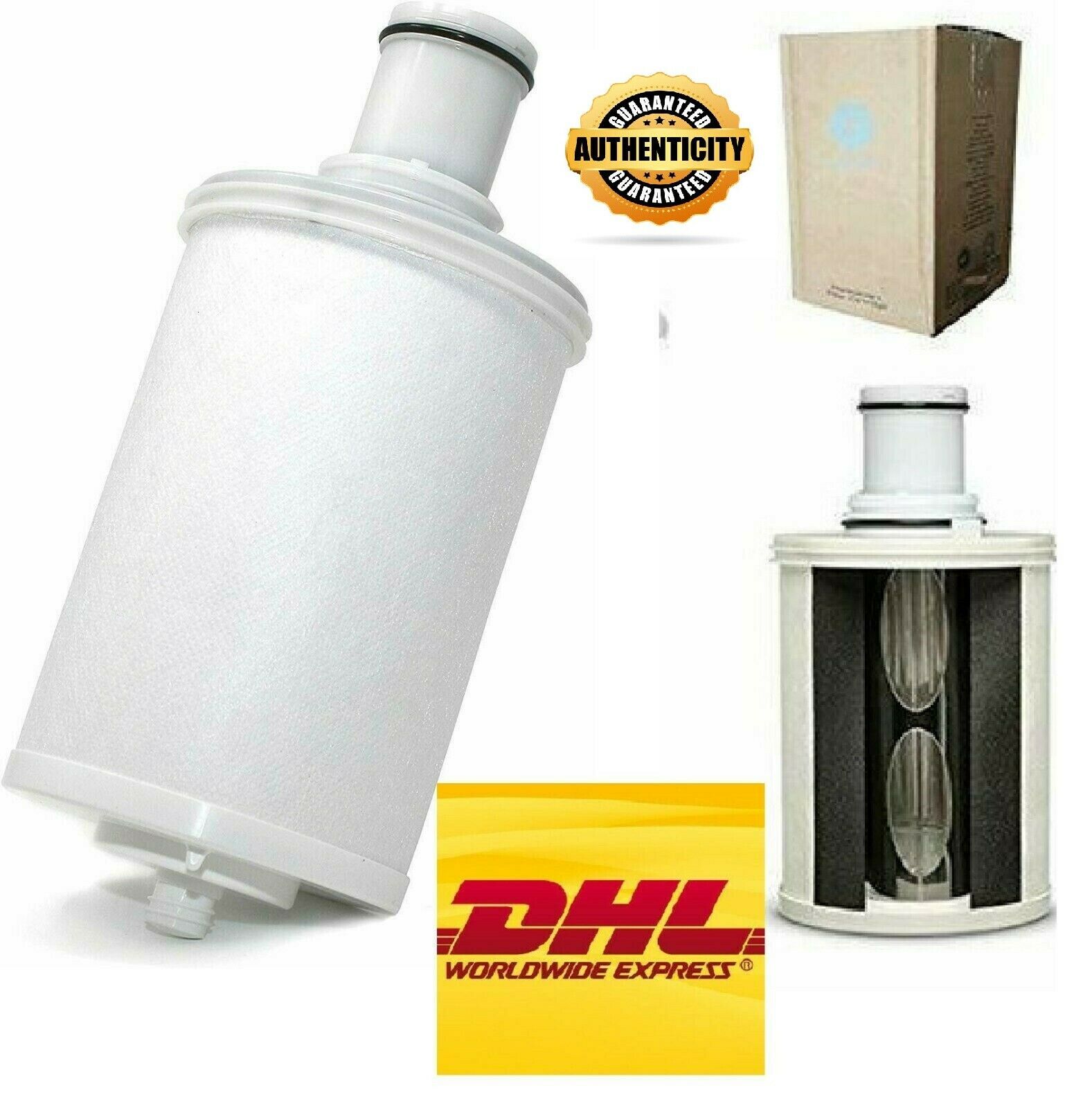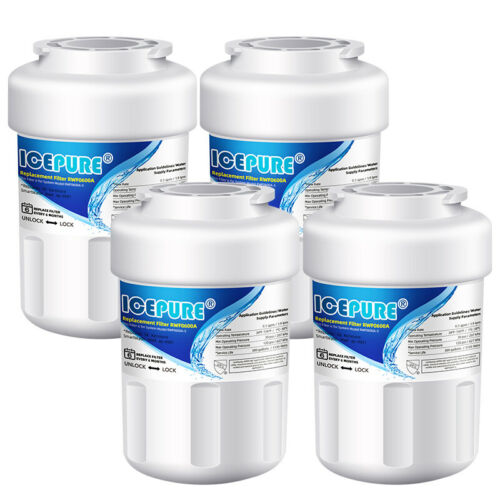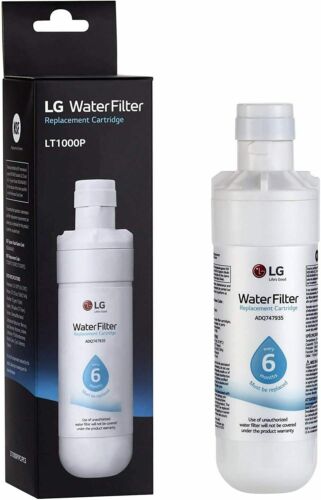-40%
eSpring Water Purifier Replacement Filter Cartridge UV 100186 Amway Original
$ 76.55
- Description
- Size Guide
Description
Amway eSpring Filter Water Purifier Replacement Cartridge UV 10-0186100% ORIGINAL
Fits WITH
the eSpring Water Purifier
(
10-0188
,
10-0189
,
110720
,
11-8384
).
The eSpring Carbon Water Treatment System’s patented carbon-block filter effectively reduces more than 140 potential health-effect impurities. Simple replacement once a year or every 1,320 gallons. The system alerts you when it's time to replace the filter and resets itself when installed.
The primary difference is that while both units have carbon-block filters, only the eSpring Water Purifier has ultraviolet light technology to treat water without chemicals. eSpring Water Purifier must be plugged into a wall outlet. The eSpring Carbon Water Treatment System runs on four “AA” batteries, making installation easier when power is not available where you want to install the unit (typically under the kitchen counter).
New in box and will send international tracking delivery.
Multi-stage activated pressed carbon block replacement filter with UV-bulb. Lasts for 5,000 liters or one year, whichever comes first.
The eSpring™ Water Treatment System alerts you when it’s time to replace the filter and resets itself when installed.
Fits ONLY the eSpring™ Water Treatment System (100188, 100189 and 301904, 301905).
What’s the difference between the eSpring Carbon Water Treatment System and the eSpring Water Purifier?
The primary difference is that while both units have carbon-block filters, only the eSpring Water Purifier has ultraviolet light technology to treat water without chemicals.
Additionally, the eSpring Water Purifier must be plugged into a wall outlet. The eSpring Carbon Water Treatment System runs on four “AA” batteries, making installation easier when power is not available where you want to install the unit (typically under the kitchen counter).
Are both the carbon block and UV light really necessary?
While carbon filtration – used with varying degrees of effectiveness in many water treatment options, like pitchers and faucet-mount filters – is the most effective single treatment method available to most homeowners, we do not think it is enough. That is why we have developed the dual-technology eSpring cartridge/filter/UV light. Its carbon block filter removes compounds that affect taste and odor along with organic health-effect contaminants (such as pesticides and VOCs). Our carbon filter can also reduce inorganic contaminants (such as lead, mercury, and radon). The UV light treats water additionally without chemicals providing a protective barrier for your family.
Can I still continue to use the unit without changing the cartridge when I am supposed to?
You really should not do that. cartridge life is based on the ability of the carbon block to trap contaminants; if you leave the carbon block unchanged when it has filled up with contaminants, it will not be able to trap new contaminants. Depending on how long it has been left in service, there’s a chance that accumulated contaminants may detach and “dump” into the treated water, making the treated water even worse than the water coming in. The UV lamp is rated for a certain number on UV “ON” time and starts. Depending on your use pattern it may deplete its life prior to the carbon filter. Guaranteed performance is the goal of the eSpring brand.
Will the carbon filter remove all contaminants?
No. Activated carbon readily adsorbs (causes to stick to its surface) organic carbon-based compounds, but it does not have an equivalent removal capacity for inorganic compounds such as iron, lime scale, nitrates, hardness minerals (such as calcium and magnesium), or soluble heavy metals like chromium or cadmium.
Can I use the eSpring™ Water Purifier on well/bore water?
Yes. The eSpring Water Purifier was designed for use on potable (drinkable) water sources such as municipal water or potable well/bore water. It is not intended for use on lake, river, or other untreated water. We recommend that you have your water tested regularly if you use well/bore water.
Can treated water be stored?
Yes. To prevent treated water from becoming contaminated, store in a clean container with a tight-fitting lid. If properly refrigerated in an airtight container, treated water may be stored for up to one week.
Can water damage the UV bulb?
No, the UV bulb is completely isolated from the water path.
Do carbon filters breed bacteria?
If there are bacteria present in the incoming water, they may grow in a carbon filter overnight, or during periods of inactivity. This is true for virtually any filter in the market, including carbon filters, even those treated with silver. The eSpring™ Water Purifier uses ultraviolet light to treat this water additionally without the use of chemicals after it leaves the carbon filter.
Does the eSpring Water Purifier change the taste of water?
The taste of water depends on what’s in the water. The eSpring Water Purifier does not remove sulfur, but it will remove many substances that affect taste, odor, and clarity of water, such as particulates or chlorine.
Does the eSpring Water Purifier remove fluoride?
The eSpring Water Purifier does not remove fluoride from water because fluoride is not naturally attracted to carbon.
How does the activated carbon-block filter work?
Most health-related contaminants (pesticides and their by-products, VOCs, THMs) contain carbon molecules, and carbon molecules tend to bond together. So contaminants in tap water will tend to bond with the carbon block filter. We "activate" the carbon through a special heat process that creates thousands of pores. This increases the surface area available to attract contaminants. The carbon is then pressed together to create a fixed carbon block. This increased surface area increases the ability of our filter to attract and "trap" carbon-based contaminants as water passes through the block. Since the surface area of the pores is limited, the carbon filter has a limited trapping capacity. That’s why the cartridge/filter must be replaced every year.
How will I know when it is time to change the cartridge?
You will know just by looking at the LED display on the unit. Using a bar gauge indication, it shows you at a glance the cartridge's remaining life. When it is time to change, it makes an audible sound and the display flashes in red.
What is so special about the UV lamp?
Ultraviolet light is an effective way to treat water additionally without the use of chemicals. The UV lamp has to be the right intensity and the water must be exposed to the light for a specific amount of time to properly dose the water (as is the case with the
eSpring™
Water Purifier).>
What’s ultraviolet technology?
The eSpring Water Purifier contains an all-in-one cartridge with an ultraviolet (UV) lamp inside a carbon-block filter. The UV bulb exposes water to powerful UV doses up 80 millijoules (units of measure) per square centimeter. The ultraviolet light in the eSpring Water Purifier features instant-on technology. Turning on the tap activates a sensor that energizes the lamp immediately. Because the UV lamp is not constantly on, it won’t heat the water or waste energy.
What’s carbon-block technology?
The eSpring carbon-block filter is "activated" carbon, processed to create pores in the carbon that increase its surface area. This increased surface area increases the ability of our filter to attract and "trap" carbon-based impurities as water passes through the block. Since the surface area of the pores is limited, the carbon filter has a limited trapping capacity. That's why the filter must be replaced every year.
Are these units certified by any third-party health groups?
NSF International is an independent, not-for-profit public health organization that helps consumers by maintaining standards for food, water, and consumer goods as well as certifying products according to these standards. The eSpring Water Purifier is the first home water purifier to feature a carbon/UV system that meets NSF International Standards 42, 52, and 55. The eSpring Carbon Water Treatment System also meets Standards 42 and 53. These standards are recognized worldwide for water quality. The eSpring Water Purifier is also certified by NSF for reducing more health-effect contaminants than any other carbon-based UV filtration system.
How effective are the eSpring Water Purifier and the eSpring Carbon Water Treatment System?
Both units are proven to improve taste, odor, and clarity of water. In addition, they reduce more than 140 potential health-effect contaminants that may be present in drinking water. These include:
·
·
Lead, mercury, MTBE, and over 40 endocrine disruptors.
·
More than 140 organic impurities.
·
More than 13 disinfection byproducts.
·
Radon and radon decay byproducts.
·
30 pesticides and pesticide byproducts.
·
Two pharmaceutical impurities [1,7 alpha-Ethinyl Estradiol (EE2) and Atenolol].
Frequently Asked Questions
What position should the auxiliary faucet be in when I'm changing the eSpring cartridge or during the flushing process?
The faucet must be in the “on” position with the water supply turned off.
After replacing the cartridge in my eSpring Water Purifier, how tight does the retaining ring need to be to maintain a watertight seal?
The retaining ring holds the filter bracket in place and only needs to be threaded until it stops. Threading the retaining ring into position doesn't require a great deal of force. After installing a new cartridge, the retaining ring should spin freely on the threads until it reaches its first stop. Even though the retaining ring may feel slightly loose to the touch, this is as tight as it needs to be to hold the bracket in place, which will provide a watertight seal. Over-tightening the retaining ring may damage your eSpring Water Purifier and impair its ability to hold the bracket in position and maintain a complete, watertight seal.
Will the carbon filter reduce all substances?
No. Activated carbon readily adsorbs (causes to stick to its surface) organic carbon-based compounds, but it doesn't have an equivalent reduction capacity for inorganic compounds such as iron, nitrates, hardness minerals (such as calcium and magnesium), or soluble heavy metals like chromium or cadmium.
Can I still continue to use the unit without changing the filter when I'm supposed to?
It is not recommended. The filter life is determined based on performance testing. Failure to maintain the unit as recommended may impair the performance.
Are both the carbon block and UV light really necessary?
While carbon filtration – used with varying degrees of effectiveness in many water treatment options, like pitchers and faucet-mount filters – is the most effective single treatment method available to most homeowners, we don't think it's enough. That's why we've developed the dual-technology eSpring replacement cartridge. Its carbon block reduces simple compounds that affect taste and odor along with organic health-effect contaminants (such as pesticides and VOCs). Our carbon filter can also reduce inorganic contaminants (such as lead, mercury, and radon). The UV light provides the added benefit of UV treatment of the filtered water.
What inorganic compounds will the eSpring filter reduce?
It's possible for a well-designed carbon filter to reduce certain inorganic contaminants. The eSpring carbon-block filter is certified for the reduction of lead, mercury, and radon and its decay products.
How does the activated carbon-block filter work?
Carbon molecules tend to attract other carbon molecules. Most health-effect contaminants – pesticides and their byproducts, VOCs, and THMs, for example – contain carbon molecules. The eSpring carbon-block filter is "activated" carbon, processed to create pores in the carbon that increase its surface area. This increased surface area increases the ability of our filter to attract and "trap" carbon-based contaminants as water passes through the block. Since the surface area of the pores is limited, the carbon filter has a limited trapping capacity. That's why the filter must be replaced every year.
Can water damage the UV bulb?
No, the UV bulb is completely sealed in a quartz sleeve within the carbon block and is not directly in contact with the water. It uses a wireless (inductive coupled) connection to power the lamp, much like the recharging unit for an electric toothbrush. An added feature users will appreciate: The light comes on only when water is flowing through the unit, so the treated water is not warmed by the light.
Can ultraviolet light make the water radioactive?
No. While the water in the eSpring Water Purifier is exposed to ultraviolet light, ultraviolet light is not radioactive. Therefore, it is impossible for the water to become radioactive.
How will I know when it’s time to change the filter?
You'll know just by looking at the LED display on the unit. It shows you at a glance the filter's remaining life on an indicator that resembles a gas gauge on a car. When it's time to change, the unit chimes and the display flashes.
Is it hard to change?
No. The patented, easily replaceable eSpring replacement cartridge screws in like a light bulb and lasts for up to 1,320 gallons or one year, whichever comes first. And the eSpring monitor automatically resets itself when the filter is replaced. There is simply nothing else this easy out there.
I've just replaced the cartridge in my eSpring Water Purifier, but the system is still beeping. How can I get it to stop?
If your system continues to beep or makes a constant tone after you have replaced the cartridge, it's likely that the top and cartridge are not aligned correctly.
·
Remove the top shroud (display/cover) and new cartridge again.
·
Reinsert the cartridge – first thread it and then turn it all the way to the right to tighten it.
·
Align the top shroud properly. The electric cord and tubing should be seated correctly inside it. When it's aligned, push it down to seat it.
·
If it's correctly seated, there should be no gap between the top shroud and the base housing.
Once the cartridge has been replaced correctly, your system should operate properly for another year or 1,320 gallons of water, whichever comes first.













